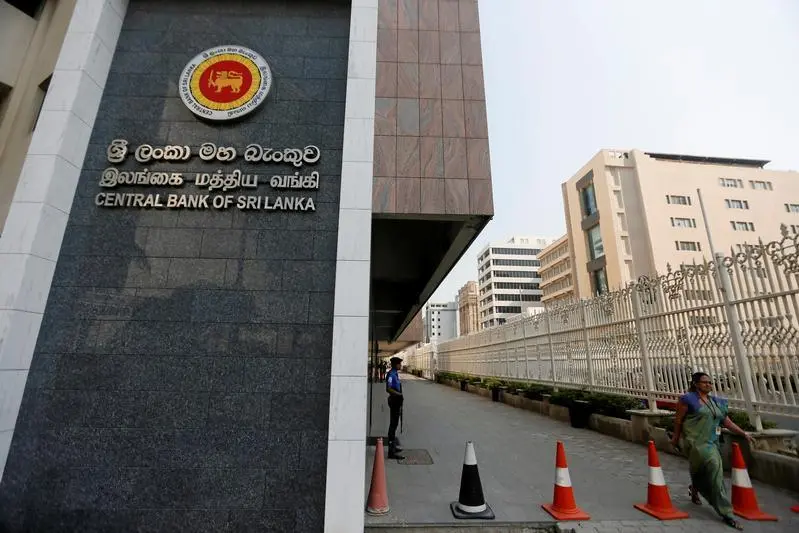PHOTO
Sri Lanka's central bank is likely to continue to ease monetary policy, following a 250 basis points rate cut on Thursday, as it tries to boost economic growth and lower borrowing costs for the government in the crisis-hit economy. In a sign of confidence that the worst of Sri Lanka's financial crisis is over, its central bank surprised markets with its first rate cut in three years on Thursday, signalling a change of course to fuel a rebound in the economy.
In a snap poll conducted on Friday, all ten economists and analysts asked said they now foresee further rate cuts in the coming months starting as early as August, with the majority expecting interest rates to end the year at 10%-11% from 13%-14% now. Sri Lanka plunged into crisis last year as its foreign exchange reserves ran out, food and energy prices spiralled and protesting mobs forced the ouster of the country's then president. Inflation easing at a faster pace than projected and sustained dollar inflows in recent months have likely given the CBSL an opportunity to embark on a loosening cycle earlier than expected and start mending economic growth, analysts said.
"We also think CBSL is eager to push market yields lower, to ease the pressure on the financial sector," Citi Bank economists wrote in a note. "This could be indicative of the likely need to pursue some domestic debt restructuring via the treasury bonds, which we think would help advance negotiations with the foreign creditors," they added. Sri Lanka secured a $2.9 billion bailout from the International Monetary Fund (IMF) in March and aims to complete restructuring debt talks by September. "The central bank's rate adjustments will also help it manage borrowing costs and compliment domestic debt restructuring decisions," said Dimantha Mathew, head of research at First Capital. "With no inflation risk the central bank will cut rates aggresssively to push demand and target growth." The CBSL expects Sri Lanka's GDP to contract by 2% in 2023, slightly better than the 3% contraction predicted by the IMF. Five analysts backed CBSL and IMF estimates, two said Sri Lanka would perform better and one projected a steeper contraction of 4.8%.
IMF Deputy Managing Director Kenji Okamura wrapping up a visit to Colombo this week said the country is showing a "strong commitment" to implementing economic reforms but must continue this momentum even in a challenging economic environment. Sri Lanka will begin rolling back import restrictions on 300-400 items from next week, as per a statement from the finance ministry which gave no further details.
The island introduced import bans on multiple items including vehicles, cosmetics and alcohol in March 2020 but gradually eased them since last year. For individual polled responses, please see table below: Organisation July August October November 2023 GDP Acuity No change 50 bps cut 300 bps cut No -2% change Advocata No change 100 bps cut No change 100bps -2% to -3% cut First Capital No change 250 bps cut No change No - 4.8% change Asha No change 50bps cut 300bps cut No - 0.5% to -1% Securities change University of No change 200-250 bps cut No change 100-200b -2% to -3% Colombo ps cut Frontier No change 200bps cut No change 100bps -2% Research cut Capital No change No change No change 100bps 3% Economics cut HSBC 150 bps cut each in 3Q and 4Q Citi Bank futher cut of 150 bps for the year CAL Group No change No change 250-300 bps No - 2% cut change (Reporting by Uditha Jayasinghe, Devayani Sathyan; Editing by Swati Bhat and Toby Chopra)





















